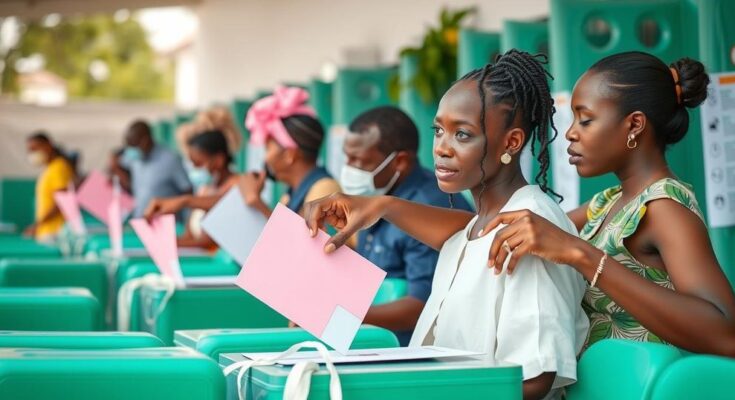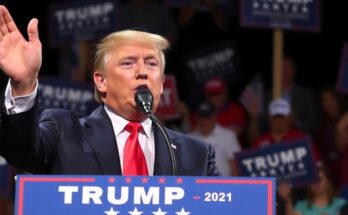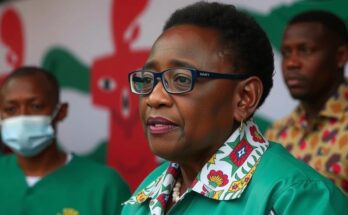Ghana has initiated presidential and parliamentary elections amid economic crises, with key candidates being Vice President Mahamudu Bawumia and former President John Mahama. The elections, set against a backdrop of significant economic hardship, will assess Ghana’s democratic resilience. Approximately 18.8 million voters are registered, and preliminary results are due soon, making this election pivotal for the future of Ghanaian politics.
Ghana has commenced its general elections, a pivotal moment for democracy in a nation recognized for its political stability. Voting began at 7 am GMT and will conclude at 5 pm GMT, with preliminary results anticipated by Sunday, and comprehensive presidential results expected by Tuesday. Key contenders in the presidential race include Vice President Mahamudu Bawumia and former President John Mahama, both vying for leadership during a time of economic turmoil amid widespread inflation and a national debt crisis.
The elections mark a significant political transition, as incumbent President Nana Akufo-Addo will not seek re-election after serving two terms. Approximately 18.8 million registered voters will decide not only on the presidential office but also on the formation of a new parliament, contributing to a historical voter turnout of 70%. In an effort to uphold the integrity of the elections, the Ghanaian government has temporarily closed all land borders.
The major parties, New Patriotic Party (NPP) and National Democratic Congress (NDC), have alternated power since 1992, but neither has yet succeeded in winning three consecutive terms. The NPP, seeking an unprecedented third term with Bawumia as their candidate, faces scrutiny regarding the previous administration’s handling of the economy, which has emerged as the central electoral issue. Bawumia has promised to further the government’s digitalization initiatives and uphold programs in education and health, asserting his readiness to enact transformative policies from the outset of his presidency.
On the other hand, Mahama, who previously served as president from 2012 to 2017, aims to rejuvenate Ghana’s economy, proposing a “24-hour economy” to augment job creation and production levels. Additionally, the issue of illegal gold mining has gained traction, with promises to curb such activities and mitigate their detrimental effects on agriculture. Furthermore, Ghana is confronted with geopolitical challenges, including the potential spillover of instability from neighboring countries affected by recent coups.
Evidently, Ghana’s reputation as a model of democracy in a tumultuous region may be tested as voters navigate these complex issues in their decision-making process. The unfolding situation will provide significant insights into the resilience of Ghanaian democracy and its capacity to endure amid economic and political pressures.
Ghana has positioned itself as a paragon of democratic governance in West Africa, having successfully transitioned power between its two major political parties since 1992. However, the nation is currently grappling with severe economic challenges, including high inflation rates and a substantial national debt, which have introduced uncertainty into the electoral landscape. The upcoming elections are crucial for determining the future political direction of the country and testing the strength of its democratic institutions.
The general elections in Ghana serve as a crucial assessment of the country’s democratic integrity during a period of economic distress. With Bawumia and Mahama representing contrasting visions for the country’s future, the elections will gauge the electorate’s response to the economic challenges they face. Moreover, the implications of these elections extend beyond domestic concerns, as they reflect the broader political stability in a region affected by unrest and instability.
Original Source: www.aljazeera.com




